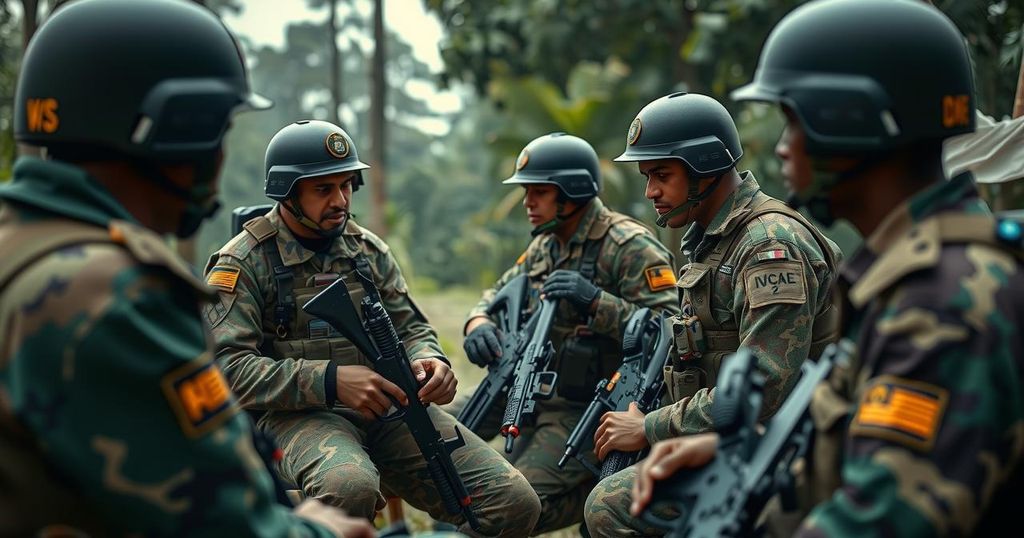Ceasefire Monitoring Unit to Begin Operations Amid Renewed M23 Advances in DR Congo
A monitoring unit will commence operations to oversee a ceasefire in eastern DR Congo amidst renewed territorial advances by M23 rebels. Increased violence has led to significant displacement and humanitarian crises, prompting concerns over healthcare and safety in affected towns like Pinga.
A unit designated to monitor the ongoing ceasefire between the Congolese army and the M23 rebel militia will officially commence operations on Tuesday, as announced by Angola, the mediator of the truce. The M23, which is predominantly comprised of ethnic Tutsi fighters, has made significant territorial gains in eastern Democratic Republic of Congo (DRC) since 2021, contributing to a humanitarian crisis characterized by the displacement of thousands. The ceasefire established in August had initially stabilized the situation, yet the M23 has resumed offensive actions in North Kivu Province since late October, threatening the loyalist town of Pinga and intensifying the violence. In recent developments, the rebels have captured Kamandi Gite following confrontations with the Wazalendo militia, which supports the Congolese army. The DRC government has accused both Rwanda and the M23 of exploiting the ceasefire to gain more territory prior to the introduction of the monitoring unit. The Angolan government, which has taken charge of the observing force, will deploy both Congolese and Rwandan officers to oversee compliance with the truce. Pinga has experienced a significant influx of displaced individuals fleeing the M23, leading to a sharp increase in its population. According to Mr. Theophile Mukandirwa, director of the local hospital, resources are critically low, stating, “The hospital has no medicine, the toilets are in a bad state and access to water is a problem. We fear the appearance of serious illnesses… that will be difficult for us to treat.”
The eastern region of the DRC, rich in minerals, has been a site of conflict and instability for over thirty years, due in large part to the presence of various rebel factions and their ties to neighboring countries. The M23 rebel group, which emerged prominently in 2021, has been accused of receiving support from Rwanda, which has exacerbated tensions between the two nations. Following an August ceasefire agreement, hostilities decreased temporarily; however, recent actions by the M23 have reignited concerns over security and humanitarian conditions in the region. The establishment of a monitoring unit aims to enforce the ceasefire and prevent further escalation of violence.
In conclusion, the newly established monitoring unit will strive to uphold the fragile ceasefire between the DRC army and the M23 rebels. The M23’s recent territorial advancements underscore the ongoing volatility in eastern DRC, raising serious humanitarian concerns as local populations are displaced and healthcare systems are strained. Angola’s mediation and deployment of an observing force comprising both Congolese and Rwandan officers will be crucial in maintaining peace and stability in this conflict-ridden region.
Original Source: www.enca.com




Post Comment